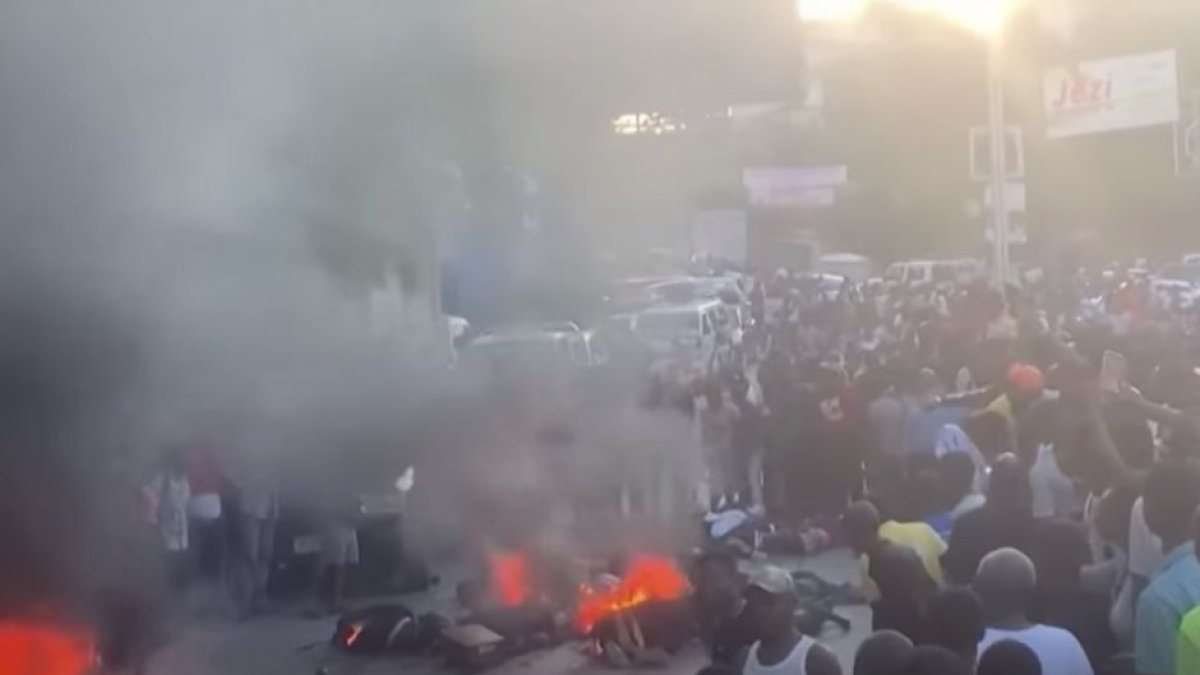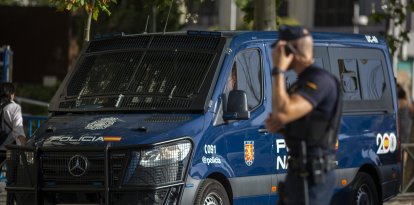Is Haiti on the verge of foreign military intervention? Everything you need to know
A delegation from Kenya arrived in the Caribbean country to assess the situation and create a plan to help restore order.

(Screenshot / RTVE Noticias)
Haiti is experiencing one of the bloodiest moments in its history. So far this year alone, more than 2,400 people have been killed by violence between criminal gangs. However, the situation could change at any time in the face of the possibility of military intervention.
After intense international debates on the situation in the Caribbean country, Kenya finally took a step forward and showed itself willing to lead a multinational force to assist the Haitian authorities and restore order.
The Kenyan delegation arrived just days ago to "assess the needs of Haiti's national police, better understand the situation and do our best to help the Haitian people," said George Orina, Kenya's ambassador and head of political and bilateral affairs, according to Reuters.
This assessment will make it possible to create a plan for a possible military intervention that will then be put to a vote in the UN Security Council. Several organizations and countries have already expressed their support for urgent action, including the option of sending a multinational force.
How did the wave of violence begin?
Although Haiti has been suffering from a severe economic, political and security crisis for years, the situation has worsened since 2021 when President Jovenel Moïse was assassinated in his residence in the early morning hours. Since then, his successor, Prime Minister Ariel Henry, has tried to contain the violence, but criminal groups have taken advantage of the power vacuum to take control of the country.
The national police have lost control, gangs killed officers, several journalists and thousands of citizens. The UN estimates that from the beginning of this year until August 15, at least 2,439 people have already died, another 902 were injured and 951 were kidnapped.
The National Network for the Defense of Human Rights in Haiti (RNDDHH) explained that armed gangs are activated to maintain "a climate of terror in the country, killing citizens, injuring others, and causing thousands of families to flee, abandoning their homes and everything they own."
"Robust use of force" needed
UN chief Antonio Guterres himself told the Security Council that he considers a "robust use of force" necessary in the deployment of the multinational police and the use of military assets to restore law and order in that country.
"Haiti's current context is not conducive to peacekeeping. Nothing short of the robust use of force, complemented by a suite of non-kinetic measures, by a capable specialized multinational police force enabled by military assets, coordinated with the national police, would be able to achieve these objectives," he told Reuters after visiting Haiti.
U.S. considers backing of multinational force
Barbara Feinstein, the deputy assistant secretary of state for Caribbean and Haiti affairs, said the United States is evaluating what support it could give to the multinational force.
Feinstein clarified that according to the results of the evaluation that Kenya is doing, contributions such as personnel, equipment, training and financing of the force will be established.
The Haitian exodus
Crime and political chaos have caused thousands of people to leave Haiti, seeking refuge in other countries. The most affected nation so far is the Dominican Republic, a country with which Haiti shares a 242-mile-long border.
Earlier this year, the Dominican Republic was seeing at least 20,000 Haitians pass through per week. However, concern about the mass exodus of Haitians is expanding.
This year alone, the United States has received more than 50,000 Haitian immigrants, and the possibility that this number will grow if conditions in Haiti worsen represents a significant concern for the North American country because it is already dealing with a migration crisis.

























